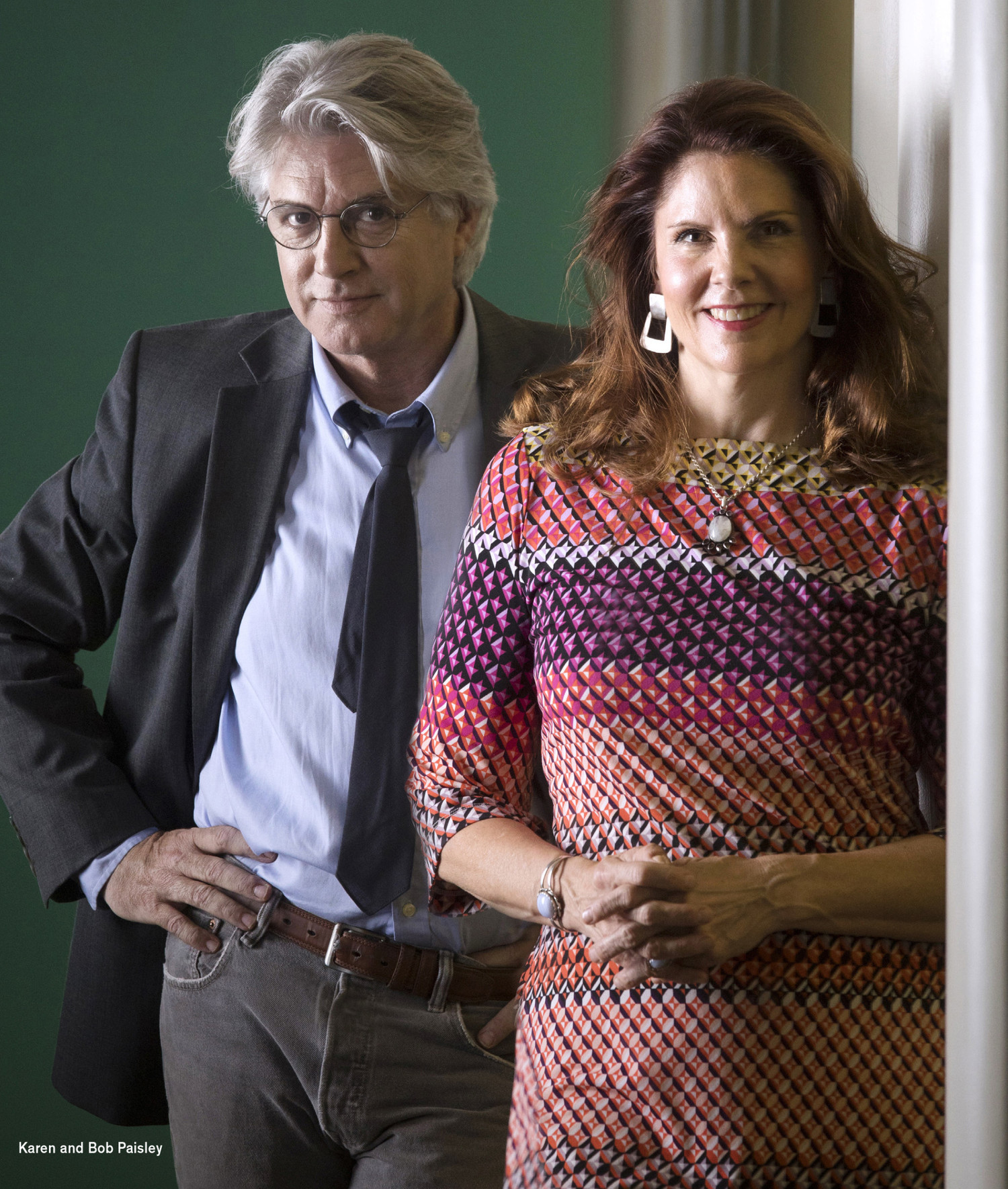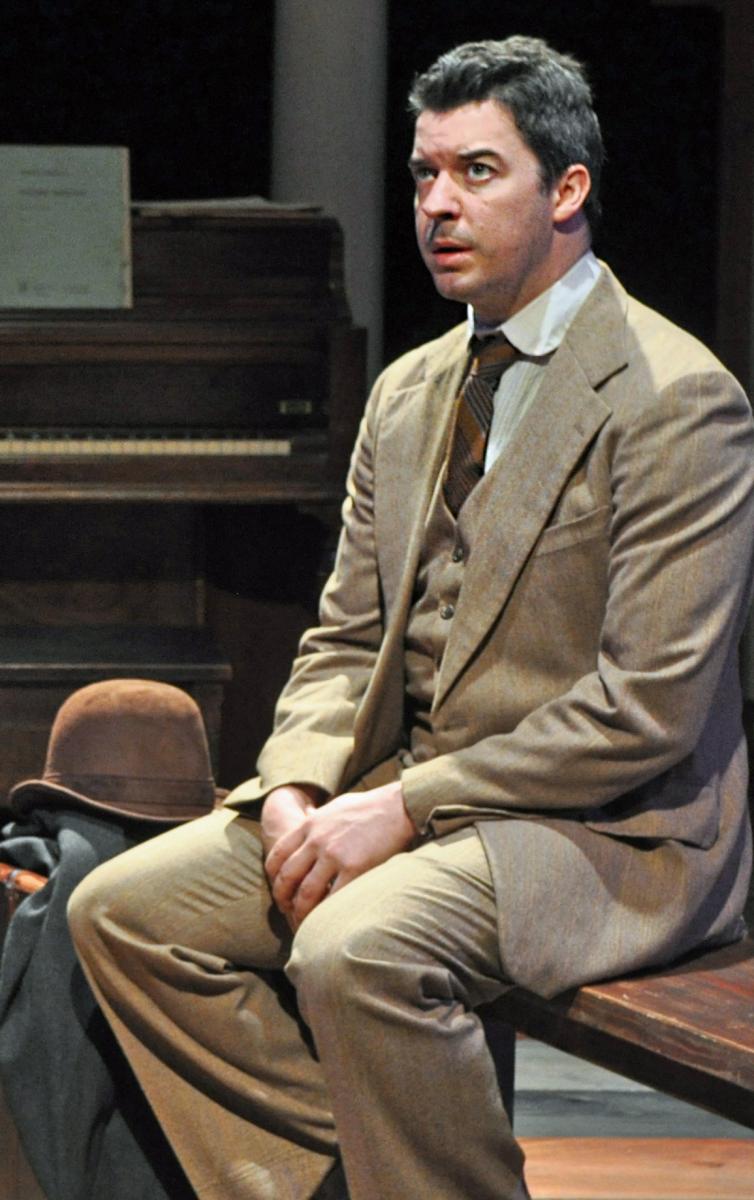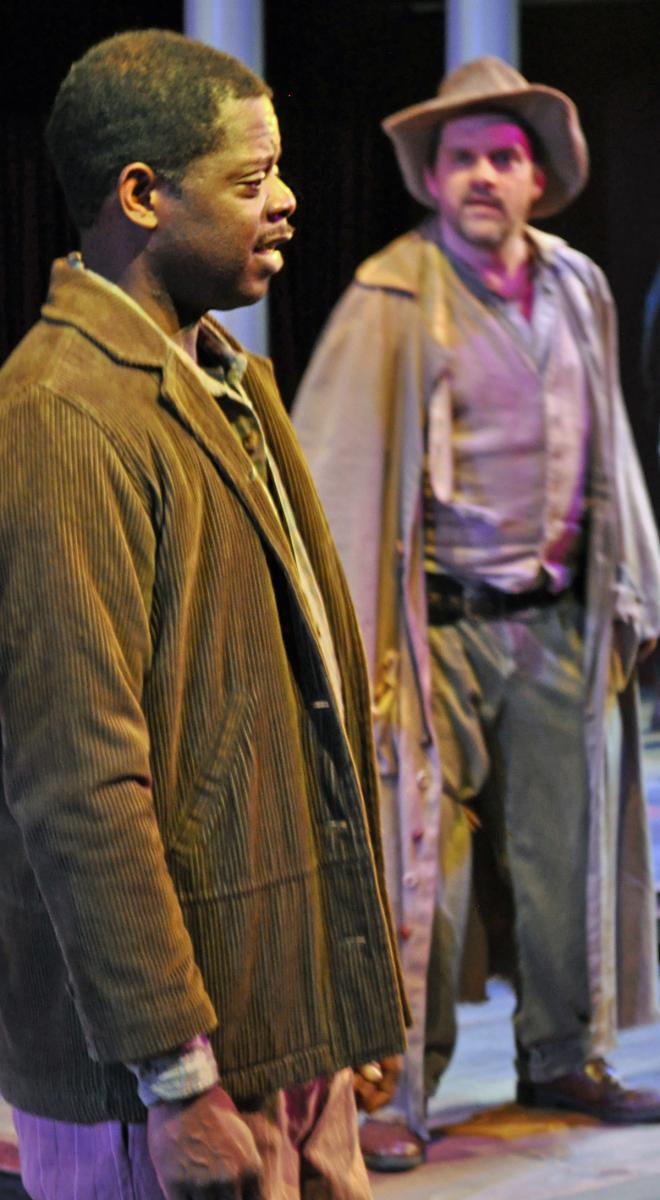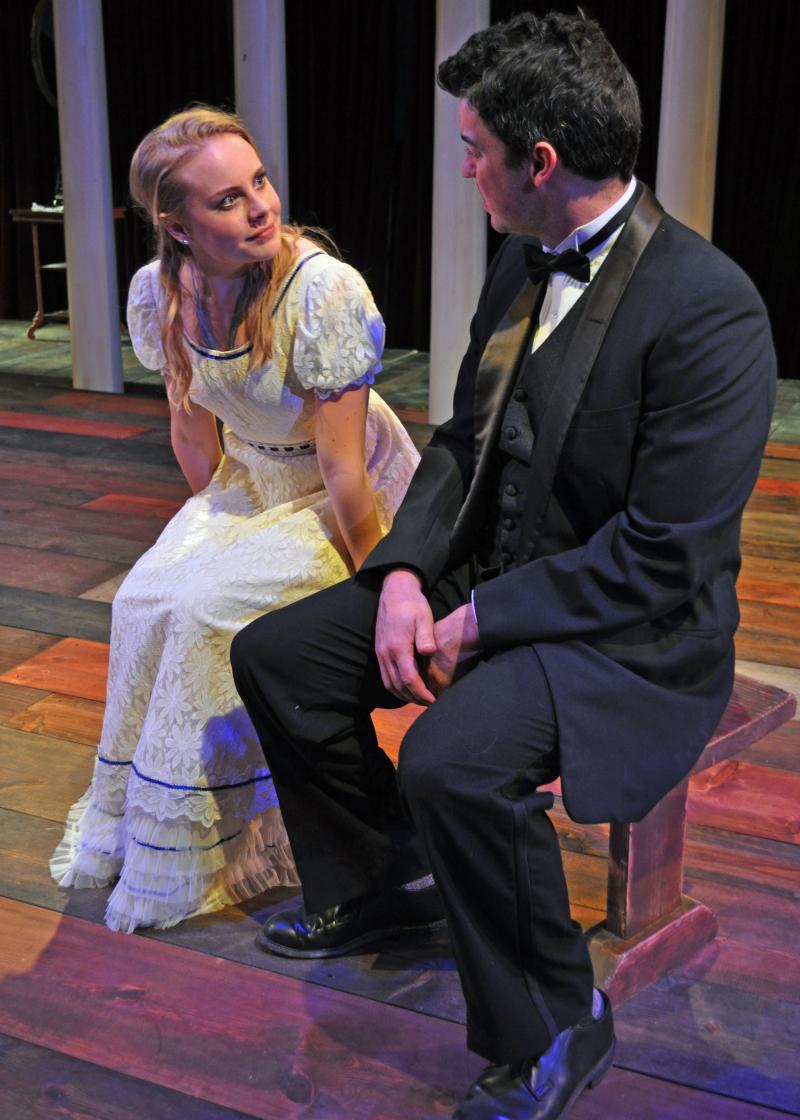Interview: Karen Paisley of THE ORPHANS' HOME CYCLE at Metropolitan Ensemble Theatre

Metropolitan Ensemble Theatre (MET), now located in the historic Warwick Theater on Main Street in Kansas City adjacent to the Plaza District presents "The Orphans' Home Cycle" continuing in repertory until November 18.
Horton Foote's "Orphans' Home Cycle" takes a bit of explanation. It is, in fact, a compilation of nine one-act plays written over decades beginning in 1962. Many of the individual one-acts have been performed as standalones or as films or TV programs. Each play approaches one hour in length followed by an intermission. Co-producers of "The Orphans' Home Cycle" are Karen and Bob Paisley. Karen also serves as Artistic Director and Director of the three play festival presentation.
MET co-founder Karen Paisley has shown an affinity for "Cycle" collaborations. MET has performed pieces, parts, or entire productions of several "Cycles." MET has produced many of the ten August Wilson plays "The Pittsburgh Cycle" and all of the "Kentucky Cycle." "Pittsburgh" chronicles the African American experience in the 20th Century. "Kentucky" tells the story three families over two centuries from Revolutionary times.
"The Orphans' Home Cycle" was still being polished for production on March 4, 2009, when playwright and screenwriter Albert Horton Foote Jr. died in Hartford Connecticut at age 92. Foote was nothing if not prolific. He acted, wrote for television, for film, and for the stage. He was awarded one Pulitzer Prize for Drama, two Academy Awards, an Emmy, and the National Medal of Arts.
It was produced by Hartford Stage in September 2009 and as a co-production of Hartford Stage and of Signature Theatre Company off and on Broadway in late 2009 and early 2010.
Broadway World was privileged to discuss "The Orphan's Home Cycle" with Director Karen Paisley.
Paisley: I saw an article about (The Orphans Home Cycle) in 2009 by (New York Times reviewer and critic) Ben Brantley. The entire Orphans' Home Cycle has not been produced since the original production in 2009. I thought it was interesting. We had done "The Kentucky Cycle" in 2012-2013. And this grouping landed on my radar.
BWW: How did you settle on these plays for this season?
Paisley: You want to make sure the plays you read match what you are thinking. Kentucky Cycle was my list. And then this one cropped up. Later, I ran across three of the one-acts on film; Courtship, Valentine's Day, and 1918. The only existing film productions of three of the nine short plays was done by the Hallmark Channel; a Kansas City company.
"The Orphan's Cycle" takes place in the years surrounding the Great World War. It started to kind of go around in my head that when I would write my dream season, the Horton Foote-Cycle would be in it. Because this is the centennial year of the 1918 Armistice and since Kansas City is home to the World War I Museum. This had to be the year. It felt really appropriate. If we didn't do it now then I would have to wait one hundred years.
I started reading the entire nine-play cycle. I didn't even know what the other plays were about besides the original three. It came in a great big book.
 BWW: I've heard the grouping described as a Magnum Opus or the great work of a substantial artist's life. This is a huge project especially when performed in repertory... Repertory means the actors will perform the nine short plays are divided into three parts with the three parts delivered on successive nights. Talk to me a bit about your process.
BWW: I've heard the grouping described as a Magnum Opus or the great work of a substantial artist's life. This is a huge project especially when performed in repertory... Repertory means the actors will perform the nine short plays are divided into three parts with the three parts delivered on successive nights. Talk to me a bit about your process.
Paisley: Yes. The original document is really cool, if a tad long. There are many nuances as characters pop up and mood details surface. I read through the original document, "Roots In A Parched Ground" with our Assistant Artistic Director Todd Lanker who also plays Horace Robedaux, the central character in the "Cycle."
Todd and I read the original first play out-loud and discovered that the 2009 edited Broadway version was better for an audience. During the editing process, Foote made really intelligent choices. But having read that original also really helped inform our production choices. And helped us understand the trajectory of the full work.
I wish I had another month or two to unpack it. There are so many additional details to talk about and the play has so many lives intertwined. Moments and props from one play come back in another.
BWW: Briefly, describe the story arc of the entire cycle.
Paisley: Structurally, the back story is Foote writing about his father. It is sad. However, the tale Foote is telling is a hero's journey of epic proportions. Every man has a boy inside. But like in the hero's journey our hero has to save himself.
No one reaches in and fishes you out. You normally have to do it yourself, but he gets through it with his spirit, his optimism, and his courage in the face of daunting circumstances. It is a positive life of Horace's own making.
After a short prologue, the cycle begins with Horace at twelve years old. Horace always has family of some sort around. "The Orphans' Home Cycle" is a metaphor.
Horace's Father passes away in the first one act. The Mother remarries to a man who chooses not to take on an almost teenage boy. Relatives pitch in to help. But Horace finds himself at age thirteen a resident non-convict on a Texas convict farm.
Note: (In early 20th century Texas, convicts were sometimes rented out to plantation owners. The state was saved the expense of guards and upkeep and was paid a minimal amount for the convict's labor. The system came into existence after the Civil War and persisted until 1912. At one point, a third of Texas state income came from arrangements such as this.)
BWW: Horace does have a relationship with the people who own the farm?
Paisley: Right... They are family but a little dysfunctional. Horace meets a series of people (not necessarily family) who move his circumstance and advance the story. And Horace moves through his life and never gives up a hope for a better tomorrow.
The first part is important for the audience to understand because this cycle is actually a fully fleshed out live miniseries; a three night theater experience. Each act (or one- act play)can stand on its own followed by an intermission, but the arc of the three stories each night and nine stories overall explodes and expands the story of Horace and all these related people in a way a shorter presentation cannot.
We do enough synopsizes in the program so an audience can understand the story coming in at any individual part of the cycle... But seeing them all together like the arc of the Kentucky Cycle is an extraordinary experience. It is like reading a novel chapter by chapter and Part One "The Story Of A Childhood"(your first section) is three chapters. Part Two "The Story Of A Marriage" is another three chapters. And the last three chapters are Part Three "The Story Of A Family."
BWW: Tell me about the characters. Do the characters and the actors playing them stay consistent?
Paisley: For the most part... Obviously, twelve and thirteen year old Horace is played by a younger actor - Creighton Smith-Allaire - and then Todd Lanker picks up the character at twenty and through the remainder of the cycle. We try to stay consistent as much as possible, but sometimes it is difficult to portray age and some actors need to play two or three characters over the arc.
BWW: The entire cycle depicts twenty-four years. And it is told mostly straight through?
Paisley: Theatrically, Foote has written an initial scene on a train and then flashed back to twelve-year-old Horace, and then from that point we see Horace's real time life straight to the end.
It is very Checkovian. As it (the play) unfolds its threads, the details have that feeling. I got to the last moment of the first scene of the first play and how the boy is affected and I was left breathless. At that point, I decided to include the entire cycle in our season.
I think the cycle gets to the question of "orphaned" meaning living without a birthright. It is feeling like you don't belong to anyone. And even if there are other related people around you are still a nation unto yourself.
BWW: Is this the first time the Orphan's Cycle has been presented in repertory since the original Broadway production in 2009-10?
Paisley: No one has seen the entire cycle performed except the people that saw it in New York. The whole Opus Magnum has never been performed in full production anywhere else. This is why part of what is happening here in Kansas City is actually a pretty big deal.
Horton Foote earned a number of awards in his lifetime, but is not as widely-known as he deserved to be. He is best known as the screenwriter of "To Kill A Mockingbird" and "Tender Mercies" which both earned screenwriting Oscars.
Horton Foote's "The Orphans' Home Cycle" continues in repertory at Metropolitan Ensemble Theatre through November 18. Individually priced tickets for any of the three individual presentations and discounted tickets for the entire cycle are available at the MET website www.metkc.org . Schedules of what runs when are also available on the website. The three parts are "The Story Of A Childhood," The Story Of A Marriage," and "The Story Of A Family." Tickets can also be purchased by telephone at 816-569-3226.
Photos courtesy of Metropolitan Ensemble Theatre.
Comments
Videos

